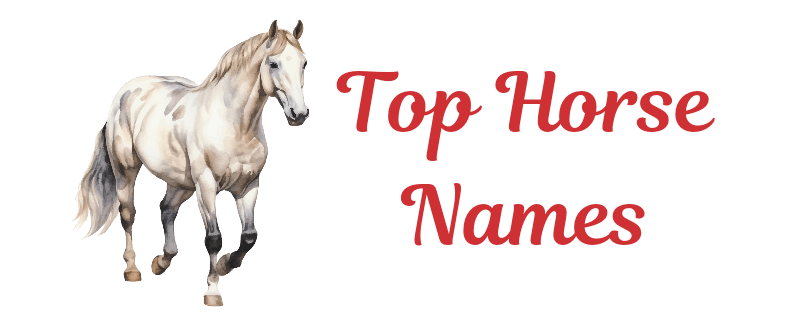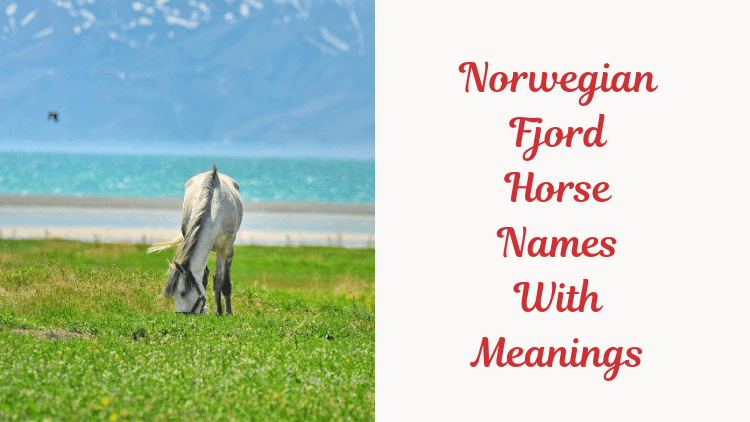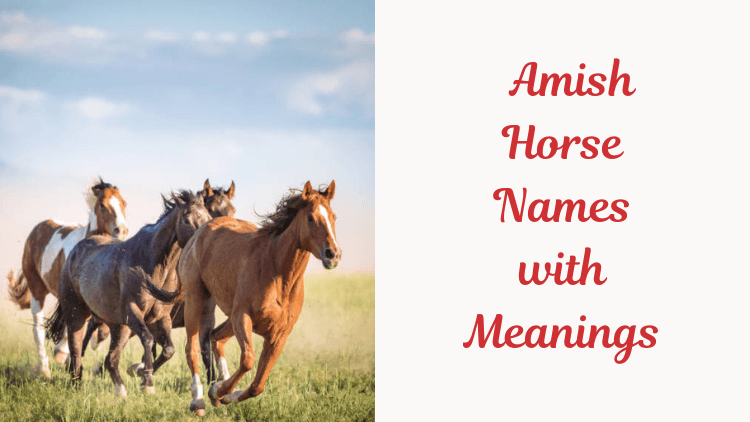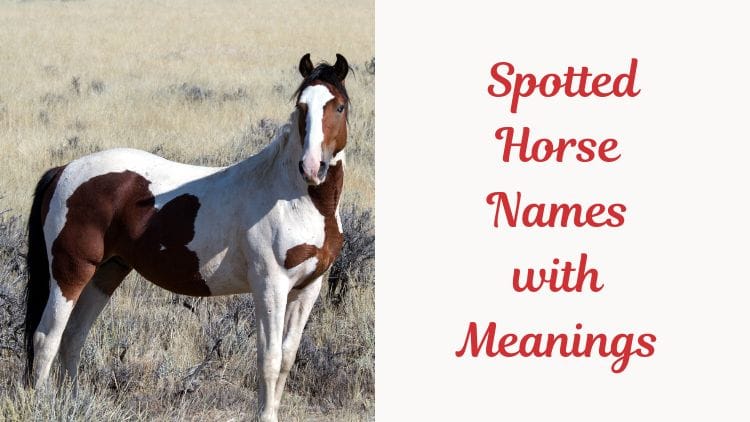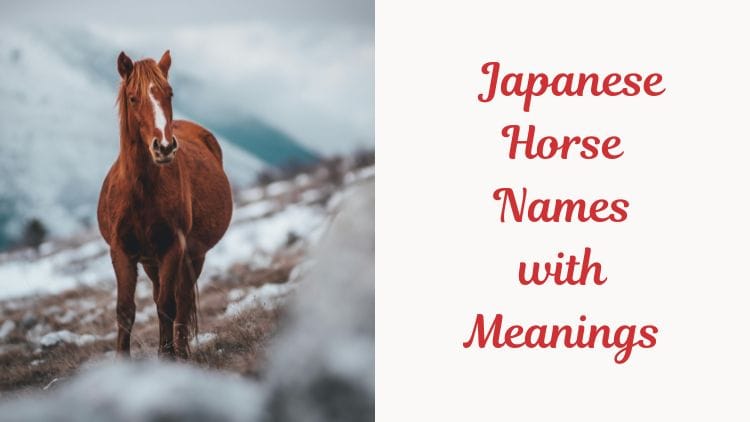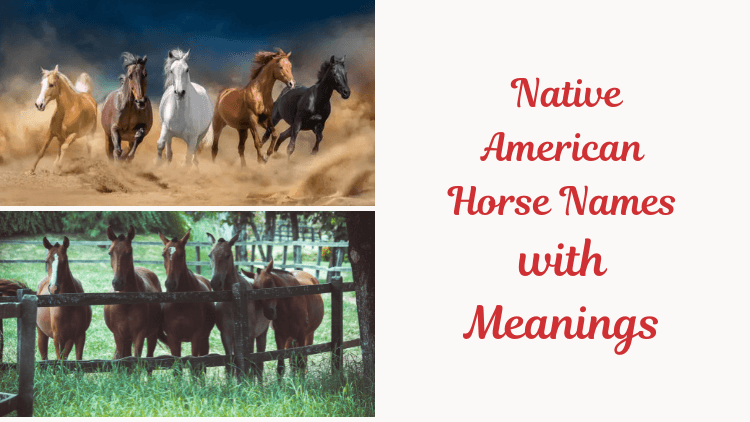124 Famous Islamic Horse Names With Meanings
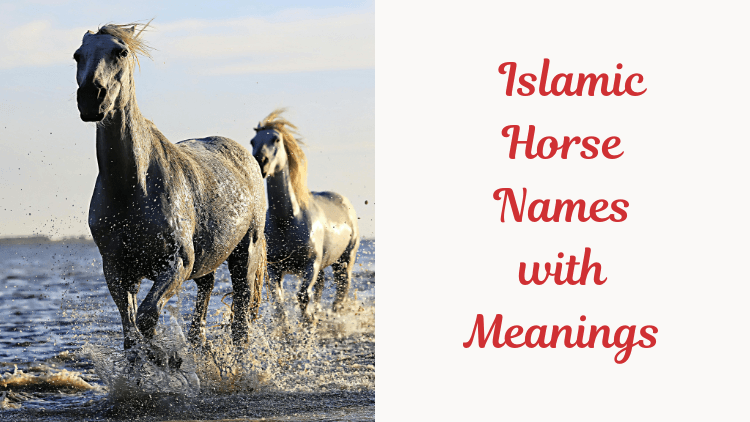
Horses hold a special place in Islamic history and culture, symbolizing strength, loyalty, and grace.
Many significant figures in Islamic tradition, including the Prophet Muhammad (PBUH), had a deep connection with horses, and their names and stories continue to inspire horse lovers worldwide.
Choosing an Islamic horse name is a meaningful way to honor this rich heritage.
Whether inspired by historical names, Quranic terms, or Islamic virtues, these names reflect beauty, faith, and significance, perfectly suited for your equine companion.
In this blog post, we’ve curated 124 famous Islamic horse names, each with its pronunciation, meaning, and origin. From names rooted in history to those embodying faith and character, find the ideal name for your majestic horse.
Our 10 Best Name Picks
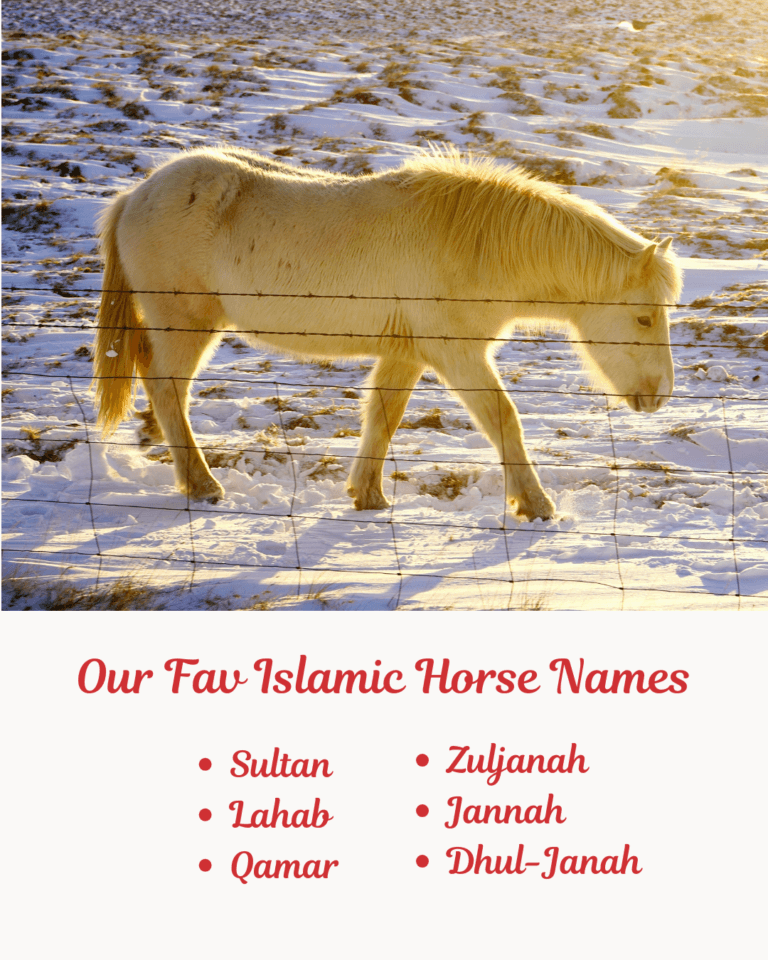
Barq – Meaning “lightning,” symbolizing speed and power.
Fajr – Referring to “dawn,” representing hope and new beginnings.
Zuljanah – Hazrat Hussain’s (AS) iconic steed, known for bravery.
Sultan – Meaning “king,” embodying royalty and authority.
Lahab – Hazrat Ali Akbar’s (AS) horse, symbolizing courage.
Qamar – Meaning “moon,” representing brilliance and beauty.
Ruh – Meaning “spirit,” symbolizing inner strength and energy.
Jannah – Meaning “paradise,” reflecting purity and divine grace.
Dhul-Janah – The Prophet Muhammad’s (PBUH) steed, renowned for loyalty.
Ameen – Meaning “trustworthy,” embodying loyalty and faithfulness.
7 Prophet Muhammad’s (PBUH) Horse Names
Prophet Muhammad’s (PBUH) horses, such as Buraq and Duldul, are revered for their strength, loyalty, and role in key battles.
Buraq famously carried the Prophet during his Night Journey, while Duldul was associated with Hazrat Ali (AS) in significant Islamic events.
These horses symbolize divine support, bravery, and spiritual significance, inspiring Muslims with their historical and symbolic importance.
1. Al-Buraq
Pronunciation: Al-Boo-raaq
Meaning: “The Lightning.”
Origin & Usage: Al-Buraq is a celestial steed believed to have carried the Prophet (PBUH) during the Isra and Miraj (Night Journey). It symbolizes speed and divine connection, playing a significant role in Islamic tradition.
2. Al-Murtajaz
Pronunciation: Al-Moor-ta-jaz
Meaning: “The Thunderous.”
Origin & Usage: Al-Murtajaz was known for its strong and thunder-like neigh. It was one of the beloved horses of the Prophet (PBUH), renowned for its vigor and loyalty.
3. Al-Lahif
Pronunciation: Al-La-heef
Meaning: “The Covered or Sheltered.”
Origin & Usage: Al-Lahif was a gift to the Prophet (PBUH) and was known for its swiftness. It holds historical importance as one of the horses used during key expeditions.
4. Al-Sakb
Pronunciation: Al-Sakb
Meaning: “The Flowing or Swift.”
Origin & Usage: Al-Sakb was cherished for its elegance and agility. It played a vital role in the Prophet’s (PBUH) journeys and remains significant in Islamic history.
5. Al-Zarib
Pronunciation: Al-Za-reeb
Meaning: “The Fast Runner.”
Origin & Usage: Known for its unmatched speed, Al-Zarib was among the noble horses
owned by the Prophet (PBUH), symbolizing strength and endurance.
6. Al-Mandub
Pronunciation: Al-Man-doob
Meaning: “The Delegated or Sent.”
Origin & Usage: Al-Mandub was a reliable horse, often used in significant expeditions, highlighting its trustworthiness and utility during the Prophet’s (PBUH) time.
7. Al-Ward
Pronunciation: Al-Ward
Meaning: “The Rose.”
Origin & Usage: Al-Ward was notable for its striking appearance and strength. This horse exemplifies beauty combined with purpose, as seen in its use by the Prophet (PBUH).
1 Hazrat Hamza (AS) Horse Name
Hazrat Hamza (AS) is known for his horse Al-Yasub, which played a key role in battles like Uhud.
The horse symbolized strength, courage, and loyalty, reflecting Hazrat Hamza’s warrior spirit and leadership.
1. Al-Yasub
Pronunciation: Al-Ya-soob
Meaning: “The Leader or Chief.”
Origin & Usage: Al-Yasub was Hazrat Hamza’s (AS) loyal steed, known for its strength and dependability. It was a companion during battles, symbolizing leadership and courage on the battlefield.
4 Hazrat Ali (AS)’s Horse Names
Hazrat Ali (AS) is famously associated with his horse Duldul, known for its strength, loyalty, and bravery in battles like Badr, Uhud, Khandaq, and Khaybar.
The horse symbolized Hazrat Ali’s valor, leadership, and unwavering faith.
Hazrat Ali (AS) is celebrated for his unmatched bravery in battles like Badr, Uhud, and Khaybar.
Known for his fearlessness and unwavering faith, he embodied strength, justice, and righteousness, inspiring generations with his courage and integrity.
1. Zuljanah
Pronunciation: Zul-ja-nah
Meaning: “The One with Beautiful Mane.”
Origin & Usage: Zuljanah was Hazrat Ali’s (AS) most famous horse, renowned for its loyalty and endurance. This noble steed is deeply revered in Islamic history, particularly for its role in the Battle of Karbala, carrying Imam Hussain (AS).
2. Murtajaz
Pronunciation: Mur-ta-jaz
Meaning: “The Thunderous.”
Origin & Usage: Murtajaz was another horse associated with Hazrat Ali (AS). Known for its power and strength, it was a symbol of Hazrat Ali’s valor and skill in combat.
3. Sabhah
Pronunciation: Sab-hah
Meaning: “The Swift or Speedy.”
Origin & Usage: Sabhah was celebrated for its speed and agility, complementing Hazrat Ali’s (AS) exceptional combat skills and ensuring his effectiveness on the battlefield.
4. Ya’sub
Pronunciation: Ya-soob
Meaning: “The Leader or Chief.”
Origin & Usage: Ya’sub was a strong and dependable horse ridden by Hazrat Ali (AS) in various battles. It symbolized leadership and unwavering loyalty.
3 Hazrat Hassan (AS)’s Horse Names
Hazrat Hassan (AS), the grandson of Prophet Muhammad (PBUH), is known for his bravery and nobility.
His horses, like “Lahiq”, symbolize strength, grace, and valor.
These steeds played a key role in his leadership and reflect his noble character in Islamic history.
1. Lahiq
Pronunciation: La-hiq
Meaning: “The One Who Catches Up.”
Origin & Usage: Lahiq was known for its speed and loyalty. It is believed to have been one of Hazrat Hassan’s (AS) trusted horses, symbolizing agility and devotion during his noble life.
2. Zarib
Pronunciation: Za-reeb
Meaning: “The Fast Runner.”
Origin & Usage: Zarib was a horse associated with Hazrat Hassan (AS), renowned for its endurance and swiftness, reflecting his serene yet courageous demeanor.
3. Al-Munjib
Pronunciation: Al-Mun-jeeb
Meaning: “The Rescuer.”
Origin & Usage: Al-Munjib was Hazrat Hassan’s (AS) horse, admired for its strength and reliability. It served him during key moments, symbolizing his calm and resolute leadership.
3 Hazrat Hussain (AS)’s Horse Names
Hazrat Hussain (AS), the grandson of Prophet Muhammad (PBUH), is remembered for his courage and sacrifice, especially during the Battle of Karbala.
His horses, like “Zuljanah”, are symbols of strength, loyalty, and valor.
These steeds were integral to his stand for justice, reflecting his unwavering commitment to truth and righteousness.
1. Zuljanah
Pronunciation: Zul-ja-nah
Meaning: “The One with Beautiful Mane.”
Origin & Usage: Zuljanah is the most famous horse of Hazrat Hussain (AS). Known for its loyalty and bravery, it played a pivotal role in the Battle of Karbala, standing by Imam Hussain (AS) until the end.
2. Murtajiz
Pronunciation: Mur-ta-jiz
Meaning: “The Thunderous.”
Origin & Usage: Murtajiz was a horse admired for its strength and reliability. It is often associated with Hazrat Hussain (AS) for its role in critical moments of his journey and struggle.
3. Ward
Pronunciation: Ward
Meaning: “The Rose.”
Origin & Usage: Ward symbolizes beauty and nobility. It is believed to have been one of Hazrat Hussain’s (AS) steeds, admired for its grace and steadfastness in challenging times.
3 Hazrat Abbas (AS)’s Horse Names
Hazrat Abbas (AS), the brother of Hazrat Hussain (AS), is known for his unmatched loyalty and bravery during the Battle of Karbala.
His horse, “Uqab”, became a symbol of strength, loyalty, and sacrifice. Hazrat Abbas’s horses, like him, embody unwavering courage and dedication to the cause of justice.
1. Uqab
Pronunciation: Oo-qaab
Meaning: “The Eagle.”
Origin & Usage: Uqab was Hazrat Abbas’s (AS) horse, known for its immense strength and swiftness. It carried him with pride during the Battle of Karbala, embodying his valor and unwavering loyalty to Imam Hussain (AS).
2. Mujalli
Pronunciation: Mu-jal-lee
Meaning: “The Radiant or Shining One.”
Origin & Usage: Mujalli was a powerful steed ridden by Hazrat Abbas (AS). Its name reflects the noble and striking presence of the flagbearer of Karbala.
3. Saqr
Pronunciation: Sa-qur
Meaning: “The Falcon.”
Origin & Usage: Saqr was associated with Hazrat Abbas (AS) as a symbol of his sharpness and agility in battle. This horse represented his prowess and dedication in defending Imam Hussain (AS) and the camp at Karbala.
3 Hazrat Ali Akbar (AS)’s Horse Names
Hazrat Ali Akbar (AS), the son of Hazrat Hussain (AS), is remembered for his valor and youth in the Battle of Karbala.
His horse, “Bahadur”, symbolized courage and loyalty. Hazrat Ali Akbar’s steeds reflect his unwavering devotion and heroic spirit in the fight for justice and truth.
1. Bahadur
Pronunciation: Ba-ha-door
Meaning: “The Brave One.”
Origin & Usage: Bahadur was Hazrat Ali Akbar’s (AS) horse, reflecting his exceptional courage and valor in the Battle of Karbala. The horse’s name symbolizes the fearless spirit of its rider.
2. Laheeq
Pronunciation: La-heeq
Meaning: “The Swift Runner.”
Origin & Usage: Laheeq, known for its unmatched speed, was a loyal companion to Hazrat Ali Akbar (AS). It carried him into the battlefield, showcasing his readiness to protect the truth at all costs.
3. Saalim
Pronunciation: Saa-leem
Meaning: “The Safe and Sound.”
Origin & Usage: Saalim symbolizes resilience and strength. It is remembered as one of Hazrat Ali Akbar’s (AS) trusted steeds, representing the noble cause he stood for in Karbala.
50 Unique Islamic Horse Names
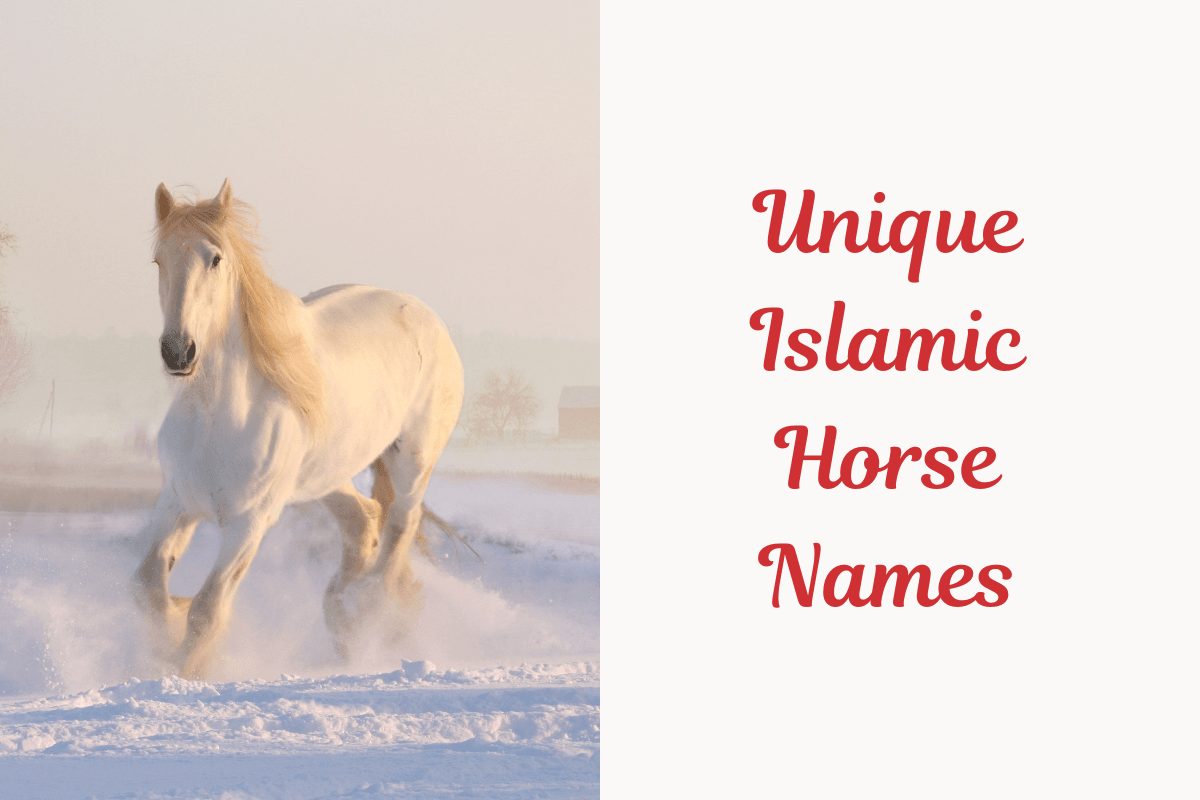
Here is a list of some unique Islamic horse names, each with its rich meaning and connection to Islamic history, culture, and values.
These names are often inspired by noble qualities such as strength, beauty, loyalty, and spiritual significance.
- Barq – Meaning “lightning,” this name symbolizes speed and power.
- Fajr – Referring to “dawn,” it represents a new beginning and hope.
- Salah – Meaning “righteousness,” reflecting virtue and integrity.
- Zain – Meaning “beauty,” symbolizing grace and elegance.
- Ameen – Meaning “trustworthy,” representing loyalty and faithfulness.
- Jannah – Meaning “paradise,” symbolizing purity and divinity.
- Qamar – Referring to the “moon,” symbolizing brilliance and beauty.
- Sultan – Meaning “king,” representing power and leadership.
- Barakah – Meaning “blessing,” symbolizing divine favor and abundance.
- Ruh – Meaning “spirit,” symbolizing inner strength and energy.
These names embody the virtues and ideals valued in Islamic tradition, making them ideal choices for horses that are not only physically powerful but also spiritually significant.
Let’s read the list of Unique Islamic Horse Names
1. Shuja
Pronunciation: Shu-jaa
Meaning: “Brave.”
Origin & Usage: Shuja is a name that reflects bravery and courage, often associated with warriors and noble steeds in Islamic history.
2. Barq
Pronunciation: Bar-q
Meaning: “Lightning.”
Origin & Usage: Barq is a fast and powerful name, symbolizing swiftness and energy, often given to horses with remarkable speed.
3. Rami
Pronunciation: Ra-mee
Meaning: “The Archer.”
Origin & Usage: Rami signifies precision and strength, ideal for a horse known for its quick movements and agility in battle.
4. Asad
Pronunciation: A-sad
Meaning: “Lion.”
Origin & Usage: Asad symbolizes power, courage, and majesty, making it a fitting name for a strong and noble horse.
5. Ameer
Pronunciation: A-meer
Meaning: “Prince.”
Origin & Usage: Ameer denotes royalty and leadership, making it a suitable name for a majestic and dignified horse.
6. Fajr
Pronunciation: Faj-ur
Meaning: “Dawn.”
Origin & Usage: Fajr symbolizes a new beginning, associated with hope and strength, ideal for a horse that brings light to any challenge.
7. Nasir
Pronunciation: Na-seer
Meaning: “Helper.”
Origin & Usage: Nasir represents support and protection, perfect for a horse that offers steadfast loyalty and assistance.
8. Jameela
Pronunciation: Ja-mee-la
Meaning: “Beautiful.”
Origin & Usage: Jameela signifies beauty and grace, often chosen for a horse with an elegant appearance and noble lineage.
9. Khalil
Pronunciation: Kha-leel
Meaning: “Friend” or “Companion.”
Origin & Usage: Khalil embodies friendship and trust, ideal for a horse that shares a deep bond with its rider.
10. Saad
Pronunciation: Sa-ad
Meaning: “Good Fortune.”
Origin & Usage: Saad symbolizes happiness and success, often chosen for a horse that brings prosperity and victory.
11. Mufid
Pronunciation: Mu-feed
Meaning: “Beneficial.”
Origin & Usage: Mufid represents usefulness and value, suitable for a horse that plays a vital role in the success of its rider.
12. Zayd
Pronunciation: Zayd
Meaning: “Growth” or “Increase.”
Origin & Usage: Zayd is a name reflecting prosperity and abundance, often given to a horse that brings success to its owner.
13. Saif
Pronunciation: Sayf
Meaning: “Sword.”
Origin & Usage: Saif is associated with strength, protection, and sharpness, suitable for a powerful and protective horse.
14. Malik
Pronunciation: Ma-lik
Meaning: “King.”
Origin & Usage: Malik symbolizes royalty and dominance, perfect for a majestic and commanding horse.
15. Amira
Pronunciation: A-mee-ra
Meaning: “Princess.”
Origin & Usage: Amira is associated with nobility and grace, often given to a graceful and regal horse.
16. Tariq
Pronunciation: Ta-reeq
Meaning: “The Morning Star” or “He Who Knocks.”
Origin & Usage: Tariq symbolizes brightness and guidance, often associated with a horse that leads the way with strength.
17. Zafar
Pronunciation: Za-far
Meaning: “Victory.”
Origin & Usage: Zafar is a name that signifies triumph and success, fitting for a horse that brings its rider to victory.
18. Faris
Pronunciation: Fa-ris
Meaning: “Knight.”
Origin & Usage: Faris is a name representing chivalry and bravery, ideal for a horse ridden by a noble warrior.
19. Bahram
Pronunciation: Ba-hram
Meaning: “The Victorious.”
Origin & Usage: Bahram signifies strength and victory, often used for a horse known for its power and success.
20. Nur
Pronunciation: Noor
Meaning: “Light.”
Origin & Usage: Nur is associated with illumination and clarity, making it a perfect name for a horse that leads the way.
21. Tariqah
Pronunciation: Ta-ree-qah
Meaning: “Pathway.”
Origin & Usage: Tariqah symbolizes direction and guidance, ideal for a horse that navigates through obstacles and challenges.
22. Jannah
Pronunciation: Jan-nah
Meaning: “Paradise.”
Origin & Usage: Jannah represents the ultimate reward, chosen for a horse that symbolizes peace and serenity.
23. Najah
Pronunciation: Na-jah
Meaning: “Success” or “Safety.”
Origin & Usage: Najah signifies achievement and protection, perfect for a horse that ensures the safety and success of its rider.
24. Shams
Pronunciation: Shams
Meaning: “Sun.”
Origin & Usage: Shams symbolizes energy and radiance, often used for a horse with a vibrant and powerful presence.
25. Khayr
Pronunciation: Khayr
Meaning: “Goodness” or “Best.”
Origin & Usage: Khayr represents excellence and virtue, ideal for a horse that embodies noble characteristics.
26. Yasin
Pronunciation: Ya-seen
Meaning: “The Name of a Chapter in the Quran.”
Origin & Usage: Yasin signifies significance and honor, a name for a horse with deep spiritual importance.
27. Qamar
Pronunciation: Qa-mar
Meaning: “Moon.”
Origin & Usage: Qamar represents beauty and grace, often used for a horse with a gentle yet powerful presence.
28. Jalil
Pronunciation: Ja-leel
Meaning: “Majestic.”
Origin & Usage: Jalil signifies grandeur and dignity, often given to a horse that carries itself with nobility.
29. Rida
Pronunciation: Ri-da
Meaning: “Contentment.”
Origin & Usage: Rida symbolizes peace and satisfaction, a fitting name for a calm and composed horse.
30. Zahid
Pronunciation: Za-hid
Meaning: “Ascetic” or “Devout.”
Origin & Usage: Zahid represents devotion and spirituality, suitable for a horse that serves its owner with unwavering loyalty.
31. Fawzan
Pronunciation: Faw-zan
Meaning: “Triumphant.”
Origin & Usage: Fawzan symbolizes success and victory, making it an ideal name for a horse that brings triumph to its rider.
32. Rafiq
Pronunciation: Ra-feeq
Meaning: “Companion” or “Friend.”
Origin & Usage: Rafiq signifies companionship and loyalty, perfect for a horse that is a true partner to its rider.
33. Kamil
Pronunciation: Ka-mil
Meaning: “Perfect.”
Origin & Usage: Kamil represents completeness and perfection, often given to a horse that exemplifies excellence in all aspects.
34. Zayn
Pronunciation: Zayn
Meaning: “Beauty.”
Origin & Usage: Zayn symbolizes elegance and charm, ideal for a horse known for its beautiful appearance and grace.
35. Noor
Pronunciation: Noor
Meaning: “Light.”
Origin & Usage: Noor is associated with radiance and purity, perfect for a horse that shines brightly and leads with integrity.
36. Saeed
Pronunciation: Sae-ed
Meaning: “Happy” or “Lucky.”
Origin & Usage: Saeed signifies joy and good fortune, often used for a horse that brings happiness and success.
37. Jamil
Pronunciation: Ja-meel
Meaning: “Handsome” or “Beautiful.”
Origin & Usage: Jamil represents beauty and charm, suitable for a horse known for its striking appearance and poise.
38. Qudamah
Pronunciation: Qu-da-mah
Meaning: “Courageous.”
Origin & Usage: Qudamah symbolizes bravery and valor, making it a fitting name for a warrior horse.
39. Dawood
Pronunciation: Da-wood
Meaning: “Beloved” or “Friend.”
Origin & Usage: Dawood signifies affection and friendship, perfect for a loyal and faithful horse.
40. Akhtar
Pronunciation: Akh-tar
Meaning: “Star.”
Origin & Usage: Akhtar represents brightness and guidance, ideal for a horse that leads with strength and wisdom.
41. Sadiq
Pronunciation: Sa-deeq
Meaning: “Truthful.”
Origin & Usage: Sadiq signifies honesty and integrity, often chosen for a horse that is reliable and steadfast.
42. Mahir
Pronunciation: Ma-heer
Meaning: “Skilled.”
Origin & Usage: Mahir symbolizes expertise and mastery, fitting for a horse with exceptional abilities.
43. Jamal
Pronunciation: Ja-mal
Meaning: “Beauty.”
Origin & Usage: Jamal signifies beauty and elegance, a name given to a horse that is graceful and stunning.
44. Sharif
Pronunciation: Sha-reef
Meaning: “Noble.”
Origin & Usage: Sharif symbolizes nobility and honor, often used for a horse that embodies dignity and high status.
45. Fakhir
Pronunciation: Fa-kheer
Meaning: “Proud” or “Esteemed.”
Origin & Usage: Fakhir represents pride and distinction, ideal for a horse that commands respect and admiration.
46. Yusra
Pronunciation: Yus-rah
Meaning: “Ease” or “Prosperity.”
Origin & Usage: Yusra symbolizes ease and success, perfect for a horse that brings comfort and wealth.
47. Bashir
Pronunciation: Ba-sheer
Meaning: “Bearer of Good News.”
Origin & Usage: Bashir represents optimism and positivity, fitting for a horse that brings joy and hope.
48. Shariq
Pronunciation: Sha-reeq
Meaning: “Radiant” or “Bright.”
Origin & Usage: Shariq symbolizes brightness and illumination, ideal for a horse that shines in any situation.
49. Raheel
Pronunciation: Ra-heel
Meaning: “One who shows the way.”
Origin & Usage: Raheel signifies guidance and leadership, perfect for a horse that leads with strength and wisdom.
50. Zayd
Pronunciation: Zayd
Meaning: “Growth” or “Abundance.”
Origin & Usage: Zayd represents prosperity and flourishing, ideal for a horse that grows in strength and power.
50 Islamic Horse Names In History
Islamic history is rich with stories of valor, courage, and faith, and many horses have played significant roles in these events.
Here are some notable Islamic horse names that have become legendary due to their connection to important historical figures and moments.
1. Buraq
Pronunciation: Bu-raq
Meaning: “Lightning” or “The Steed of the Prophet.”
Origin & Usage: Buraq is the celestial steed that carried Prophet Muhammad (PBUH) during the Night Journey (Isra and Mi’raj), symbolizing speed and divine power.
2. Al-Basil
Pronunciation: Al-Ba-sil
Meaning: “The Brave.”
Origin & Usage: Known for its courage, this horse was ridden by several great warriors in Islamic history, embodying fearlessness and valor.
3. Duldul
Pronunciation: Dul-dul
Meaning: “The Steed of Ali.”
Origin & Usage: Duldul was the horse of Hazrat Ali (AS), known for its strength, loyalty, and significant role in many battles, especially at the Battle of Badr.
4. Al-Qamus
Pronunciation: Al-Qa-mus
Meaning: “The Powerful.”
Origin & Usage: Al-Qamus was Hazrat Ali’s (AS) other horse, known for its bravery and loyalty in numerous battles.
5. Tufail
Pronunciation: Tu-fail
Meaning: “The Victorious.”
Origin & Usage: A revered horse in Islamic history, used by several renowned warriors known for their feats on the battlefield.
6. Mahasin
Pronunciation: Ma-ha-sin
Meaning: “The Beauty.”
Origin & Usage: Mahasin was the horse of the famous Muslim general, Khalid ibn al-Walid, symbolizing both beauty and strength.
7. Al-Mujahid
Pronunciation: Al-Mu-ja-hid
Meaning: “The Warrior.”
Origin & Usage: A legendary horse associated with several Islamic warriors who fought for the cause of Islam, known for its speed and loyalty.
8. Barq al-Sahra
Pronunciation: Barq al-Sah-ra
Meaning: “Lightning of the Desert.”
Origin & Usage: Barq al-Sahra was a notable horse of the early Islamic conquests, recognized for its agility and endurance in the desert.
9. Al-Faris
Pronunciation: Al-Fa-ris
Meaning: “The Knight.”
Origin & Usage: Al-Faris was a horse known for its noble lineage and the distinguished knights who rode it in Islamic history.
10. Al-Rihab
Pronunciation: Al-Ri-hab
Meaning: “The Wind.”
Origin & Usage: A swift horse ridden by several prominent figures in the history of Islam, known for its ability to travel long distances rapidly.
11. Al-Qahir
Pronunciation: Al-Qa-hir
Meaning: “The Conqueror.”
Origin & Usage: A horse that carried powerful leaders like Saladin during his campaigns, symbolizing strength and victory.
12. Saif al-Islam
Pronunciation: Sa-if al-Is-lam
Meaning: “Sword of Islam.”
Origin & Usage: A horse belonging to the renowned warrior Sultan Salah ad-Din,
symbolizing strength and valor in the defense of Islam.
13. Al-Hijaz
Pronunciation: Al-Hi-jaz
Meaning: “The Arabian Peninsula.”
Origin & Usage: A historic horse ridden by great leaders during the expansion of Islam, known for its endurance and speed.
14. Ashqar
Pronunciation: Ash-qar
Meaning: “The Blond.”
Origin & Usage: Ashqar was a horse of the Prophet’s army, symbolizing loyalty and valor during the battles for Islam.
15. Al-Jawad
Pronunciation: Al-Ja-wad
Meaning: “The Generous.”
Origin & Usage: Known for its nobility and grace, Al-Jawad was used in several battles during the time of the Prophet (PBUH).
16. Zaynab
Pronunciation: Zay-nab
Meaning: “Father’s Pride.”
Origin & Usage: Zaynab was a strong, loyal horse that was ridden by many warriors, including those close to the Prophet (PBUH).
17. Sakr
Pronunciation: Sak-r
Meaning: “Falcon.”
Origin & Usage: A horse known for its sharpness and quickness, symbolic of a falcon’s swiftness and precision in battle.
18. Al-Masri
Pronunciation: Al-Mas-ree
Meaning: “The Egyptian.”
Origin & Usage: An Egyptian horse known for its strong build, used by Islamic generals during campaigns in Egypt and surrounding regions.
19. Jamilah
Pronunciation: Ja-mee-lah
Meaning: “The Beautiful.”
Origin & Usage: A beautiful and swift horse belonging to a noble general, praised for its elegance and spirit.
20. Ghazal
Pronunciation: Gha-zal
Meaning: “Gazelle.”
Origin & Usage: Known for its grace and speed, Ghazal was the horse of a famous warrior, admired for its swift movements on the battlefield.
21. Saqar
Pronunciation: Sa-qar
Meaning: “Eagle.”
Origin & Usage: A strong horse, symbolizing the eagle’s strength and sharpness, used in many historic battles.
22. Al-Ikhlas
Pronunciation: Al-Ikh-las
Meaning: “The Sincere.”
Origin & Usage: A horse known for its pure heart and devotion to its rider, often associated with the early Islamic caliphs.
23. Al-Qadim
Pronunciation: Al-Qa-dim
Meaning: “The Ancient.”
Origin & Usage: An ancient and revered horse, known for its unmatched endurance and loyalty in the historical battles of Islam.
24. Qamar al-Zaman
Pronunciation: Qa-mar al-Za-man
Meaning: “Moon of the Era.”
Origin & Usage: A celestial horse that carried famous figures, symbolizing beauty and grace in battle.
25. Shujaat
Pronunciation: Shu-ja-at
Meaning: “Courage.”
Origin & Usage: A horse ridden by brave warriors, it was known for its valor and strength during the Islamic conquests.
26. Sa’di
Pronunciation: Sa-dee
Meaning: “Lucky” or “Fortunate.”
Origin & Usage: A steed that was trusted by many of the Prophet’s companions, known for bringing good fortune to those who rode it.
27. Raghad
Pronunciation: Ra-ghad
Meaning: “Comfort.”
Origin & Usage: Known for its smooth gait and noble character, Raghad was a royal steed used in significant battles during early Islam.
28. Al-Kamil
Pronunciation: Al-Ka-mil
Meaning: “The Perfect.”
Origin & Usage: A horse known for its perfect physique, grace, and loyalty, it was ridden by many prominent warriors in Islamic history.
29. Al-Aziz
Pronunciation: Al-A-zeez
Meaning: “The Mighty.”
Origin & Usage: A mighty steed ridden by caliphs and generals, known for its power and resilience in battle.
30. Hizam
Pronunciation: Hi-zam
Meaning: “The Belt.”
Origin & Usage: A horse known for its strength and endurance, symbolic of the protection and loyalty provided by its rider.
31. Al-Mawardi
Pronunciation: Al-Ma-war-di
Meaning: “The Gardener.”
Origin & Usage: A horse with a strong connection to historical figures known for their strategic thinking and leadership.
32. Zaki
Pronunciation: Za-kee
Meaning: “Pure” or “Virtuous.”
Origin & Usage: A noble steed symbolizing purity and righteousness, revered for its role in the early Islamic army.
33. Al-Mahdi
Pronunciation: Al-Mah-dee
Meaning: “The Guided One.”
Origin & Usage: A horse used by some of the most revered figures in Islamic history, believed to possess divine guidance.
34. Al-Sultan
Pronunciation: Al-Sul-tan
Meaning: “The King.”
Origin & Usage: A royal steed symbolizing power and nobility, ridden by kings and caliphs throughout Islamic history.
35. Sadiq
Pronunciation: Sa-deeq
Meaning: “Truthful.”
Origin & Usage: Known for its loyalty and steadfastness, Sadiq was a horse that served great leaders and warriors with devotion.
36. Arqam
Pronunciation: Ar-qam
Meaning: “Strong” or “Resolute.”
Origin & Usage: A horse known for its unyielding strength and determination, often associated with the early Islamic military conquests.
37. Al-Nasr
Pronunciation: Al-Nasr
Meaning: “Victory.”
Origin & Usage: This horse was associated with many victories during the early Islamic wars, symbolizing success and triumph.
38. Bahram
Pronunciation: Bahr-am
Meaning: “Champion.”
Origin & Usage: A horse named after the Persian hero, Bahram, symbolizing bravery and skill in battle.
39. Al-Ra’id
Pronunciation: Al-Ra-id
Meaning: “The Pioneer.”
Origin & Usage: A horse known for its leadership and pioneering spirit, used by prominent Islamic figures.
40. Tabari
Pronunciation: Ta-ba-ree
Meaning: “The Arabian.”
Origin & Usage: A prestigious steed from the Arabian Peninsula, known for its royal lineage and participation in many historical battles.
41. Lays
Pronunciation: Lays
Meaning: “The Lion.”
Origin & Usage: Lays was a symbol of courage and strength, associated with legendary warriors in Islamic history.
42. Al-Badr
Pronunciation: Al-Bad-r
Meaning: “The Full Moon.”
Origin & Usage: Named after the Battle of Badr, it was ridden by brave warriors during the early days of Islam.
43. Hawa
Pronunciation: Ha-wa
Meaning: “Desire” or “Passion.”
Origin & Usage: A powerful and spirited horse known for its energy and determination.
44. Madani
Pronunciation: Ma-da-nee
Meaning: “From Medina.”
Origin & Usage: A horse that symbolizes the city of Medina, linked to the early Muslim community and its warriors.
45. Tigris
Pronunciation: Ti-gris
Meaning: “Tiger.”
Origin & Usage: Known for its ferocity and strength, Tigris was a horse of great power in the Islamic wars.
46. Hadiya
Pronunciation: Ha-dee-ya
Meaning: “Gift.”
Origin & Usage: A cherished horse known for its beauty and grace, symbolic of the gifts that Allah bestows upon His believers.
47. Ghusn
Pronunciation: Ghus-n
Meaning: “Branch” (from a tree).
Origin & Usage: A symbol of resilience and growth, this horse played a significant role in battles led by early Muslim warriors.
48. Qanbar
Pronunciation: Qan-bar
Meaning: “The Brave One.”
Origin & Usage: A noble horse that carried warriors into many of the most significant battles of early Islam.
49. Nur
Pronunciation: Nur
Meaning: “Light.”
Origin & Usage: A radiant and powerful horse, symbolic of divine guidance and illumination.
50. Khayr
Pronunciation: Khayr
Meaning: “Goodness.”
Origin & Usage: Khayr was a horse that symbolized purity and goodness, revered by those who rode it in the service of Islam.
Here’s our list of:270+Top Arabian Horse Names With Meanings: Male, Female & Funny Names
Tips for Choosing an Islamic Horse Name
1. Reflect Virtue and Honor
Choose a name that embodies values such as loyalty, bravery, or righteousness, reflecting the noble qualities admired in Islamic tradition.
2. Consider Historical Significance
Select a name that has historical relevance, like the names of horses associated with great figures such as Prophet Muhammad (PBUH) or prominent companions.
3. Use Positive Meanings
Opt for names that have positive meanings in Arabic, such as “Barakah” (blessing), “Sultan” (king), or “Ameen” (trustworthy).
4. Focus on Strength and Speed
Horses in Islamic history are often associated with power and agility. Names like “Barq” (lightning) or “Fajr” (dawn) symbolize these attributes.
5. Incorporate Nature-Inspired Names
Many Islamic horse names are inspired by nature, such as “Qamar” (moon) or “Ruh” (spirit), symbolizing beauty and energy.
6. Avoid Overly Common Names
For a unique and meaningful name, avoid generic or overly popular names. Look for names that are less common but still hold strong significance.
7. Connect with Faith and Spirituality
Names that evoke a sense of spirituality or divine connection, like “Jannah” (paradise) or “Tawbah” (repentance), are great choices.
8. Honor Islamic Legends and Heroes
Naming a horse after famous Islamic figures like “Zuljanah” (Hussain’s AS horse) or “Al-Buraq” (the Prophet’s PBUH steed) adds a layer of historical honor.
9. Ensure Easy Pronunciation
Make sure the name is easy to pronounce, both in Arabic and your native language, for ease of use and clarity.
10. Reflect the Horse’s Character
Choose a name that reflects the horse’s personality or physical traits, whether it’s strength, gentleness, or agility. Names like “Salah” (righteousness) or “Zain” (beauty) can mirror these characteristics.
